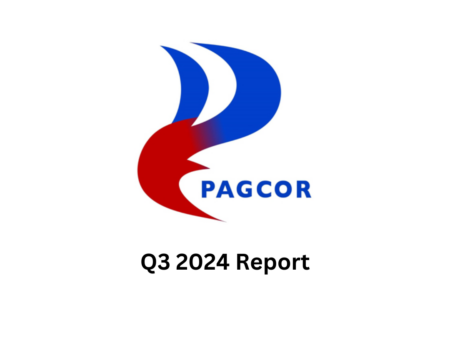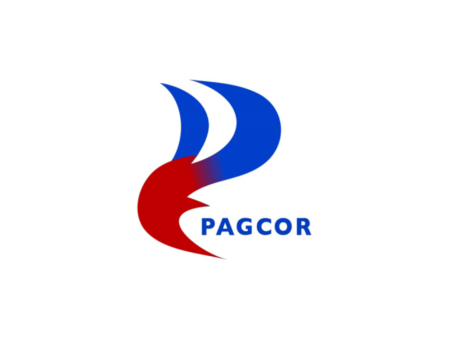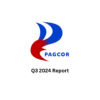In a significant legal development, a federal judge has dismissed a class-action lawsuit that alleged price-fixing among major Las Vegas hotels. The lawsuit, initiated by Seattle-based law firm Hagens Berman Sobol Shapiro on behalf of two tourists, accused Caesars Entertainment, MGM Resorts, Wynn Resorts, and Treasure Island of conspiring to inflate room prices through the use of data-sharing software.
Origins and Allegations of the Lawsuit
Filed in January 2023, the lawsuit claimed that the hotel operators engaged in surreptitious agreements to artificially elevate room rates. Central to the allegations was the use of Rainmaker, a software developed by Florida-based Cyndyn Group, which purportedly facilitated the sharing of sensitive pricing information among the hotels.
The plaintiffs argued that this practice violated the Sherman Antitrust Act, designed to prevent anti-competitive behavior detrimental to consumers. They sought repayment for alleged overcharges, contending that the use of Rainmaker led to biased pricing recommendations favoring the hotel operators.
Judicial Decisions and Rationale
US District Chief Judge Miranda Du dismissed the lawsuit, stating that the plaintiffs failed to demonstrate a clear price-fixing agreement among the hotel operators. This dismissal followed an earlier decision in October 2023, where the judge found the allegations insufficient.
Judge Du emphasized that hotel operators were not obligated to follow Rainmaker’s pricing suggestions, undermining the plaintiffs’ argument. The judge’s ruling highlighted the lack of concrete evidence supporting the existence of a collusive agreement.
Reactions from Both Sides
Representatives of the hotel operators celebrated the dismissal, reiterating their commitment to fair business practices. They welcomed the decision as a validation of their adherence to competitive pricing norms.
Conversely, the plaintiffs’ legal team expressed disappointment but indicated they are exploring options for an appeal. They maintain that the use of Rainmaker distorted normal market competition, resulting in higher room rates for consumers.
Implications for the Hotel Industry
The dismissal of this lawsuit marks a significant victory for the implicated Las Vegas hotel giants, allowing them to avoid potential financial liabilities and reputational damage. It also underscores the challenges plaintiffs face in proving collusion and price-fixing in the hospitality industry, where pricing strategies are often complex and influenced by multiple factors.
The Role of Rainmaker in Hotel Pricing
Rainmaker’s software, at the heart of this legal battle, provides pricing recommendations based on data analytics. While the plaintiffs argued that these recommendations favored hotel operators, Judge Du noted that the software’s use does not equate to mandatory adherence, thereby weakening claims of a price-fixing conspiracy.
The case brings to light the fine line between competitive pricing strategies and anti-competitive practices. It raises important questions about the role of technology in pricing decisions and the potential for misuse in various industries.
Future Outlook and Potential Appeals
As the plaintiffs consider an appeal, the broader implications for the hotel industry and regulatory oversight remain in focus. An appeal could lead to further scrutiny of pricing practices and the use of data-sharing technologies in hospitality and other sectors.
For now, the ruling provides a respite for Caesars Entertainment, MGM Resorts, Wynn Resorts, and Treasure Island, allowing them to continue their operations without the cloud of a class-action lawsuit. The decision also serves as a precedent for similar cases, emphasizing the need for substantial evidence to support allegations of price-fixing and collusion.
Conclusion: The Dismissal
The dismissal of the price-fixing lawsuit against major Las Vegas hotels represents a pivotal moment in the ongoing discourse on competitive practices within the hospitality industry. While the ruling favors the hotel operators, it underscores the importance of transparency and fairness in pricing strategies. As the legal proceedings potentially continue with an appeal, the case will remain a touchstone for future regulatory and judicial considerations.
FAQs on Dismissal of Class-Action Lawsuit Against Las Vegas Hotels
1. What was the class-action lawsuit about?
The class-action lawsuit alleged price-fixing among major Las Vegas hotels, including Caesars Entertainment, MGM Resorts, Wynn Resorts, and Treasure Island, claiming they conspired to inflate room prices.
2. Who filed the lawsuit and on what grounds?
The lawsuit was filed by a Seattle-based law firm on behalf of two tourists in January 2023. It alleged that the hotels engaged in anti-competitive practices by sharing sensitive pricing information using software called Rainmaker.
3. What is Rainmaker, and how was it implicated in the lawsuit?
Rainmaker is a data-sharing software developed by the Cyndyn Group. The lawsuit claimed that the hotels used Rainmaker to exchange pricing information, resulting in artificially high room rates.
4. What legal statute did the plaintiffs invoke in their lawsuit?
The plaintiffs invoked the Sherman Antitrust Act, which aims to prevent anti-competitive practices detrimental to consumers, to challenge the hotel operators.
5. What was the outcome of the lawsuit?
US District Chief Judge Miranda Du dismissed the lawsuit, stating that the plaintiffs failed to provide sufficient evidence of a price-fixing agreement among the hotel operators.
6. Why did Judge Du dismiss the lawsuit?
Judge Du found that the plaintiffs did not prove that the hotels were obligated to follow Rainmaker’s pricing suggestions, weakening their argument of collusion.
7. How did representatives of the hotel operators react to the dismissal?
Representatives of the hotel operators celebrated the dismissal, emphasizing their commitment to fair business practices.
8. What options are being considered by the plaintiffs after the dismissal?
The plaintiffs’ legal team is considering appealing the dismissal, as they maintain that Rainmaker distorted market competition, resulting in higher room rates for consumers.
9. What broader implications does the dismissal have for the hotel industry?
The dismissal sets a precedent for similar cases and underscores the challenges of proving collusion in pricing strategies within the hospitality industry.
10. How does the dismissal impact the future of regulatory oversight in the hotel industry?
The dismissal highlights the need for substantial evidence to support allegations of price-fixing and collusion, shaping future regulatory and judicial considerations in the industry.
11. What role does technology play in pricing decisions within the hospitality industry?
The case raises questions about the role of technology, such as Rainmaker, in pricing decisions and the potential for misuse in various sectors beyond hospitality.
12. What potential impact could an appeal have on the case?
An appeal could lead to further scrutiny of pricing practices and the use of data-sharing technologies, providing clarity on legal standards in antitrust cases.
13. How does the dismissal affect the ongoing discourse on competitive practices in the hospitality industry?
The dismissal serves as a pivotal moment in the ongoing discourse on transparency and fairness in pricing strategies, prompting discussions on industry norms and consumer protection.


















